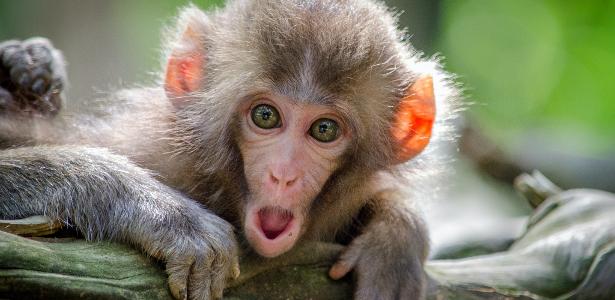Chinese scientists plan to send monkeys to Tiangong space station With the aim of conducting a reproductive experiment using animals. The proposal is to analyze whether they can reproduce outside the terrestrial environment. The information was released by the South China Morning Post portal.
According to Zhang Lu, a researcher at the Chinese Academy of Sciences in Beijing and one of the study leaders, the experiment will be conducted in Wentian, which is the largest unit on the space station, and is used primarily for life science experiments. The Chinese laboratory has already analyzed smaller organisms such as algae, fish and snails.
“Some studies will be done involving mice and monkeys to see how they grow or even reproduce in space. These experiments will help improve our understanding of the organism’s adaptation to microgravity and other space environments.
Kikhui Qi, a professor at Tsinghua University School of Medicine, led an orbital stem cell experiment conducted by Chinese astronauts. According to him, the challenges of experimenting with life sciences in space increase exponentially with the size of the animals used.
“The astronauts will need to feed them and deal with the waste they produce,” Key said.
negative answers
Large animals, especially monkeys, have many similarities with humans, and the possibility of Human reproduction in space It is a question that has been questioned for decades.
Although the monkeys that will be sent into space have been lab-bred and live in cages, prolonged confinement to a small space can cause some negative responses, such as decreased activity, fur pulling, or refusal to eat. In addition, the rocket’s flight to the space station can also frighten animals.
On Earth, you can calm a frightened monkey with toys, Song Or let them mingle with other monkeys. How to take care of them and keep them happy and comfortable will be a new challenge for astronauts,” said an unidentified expert.
Mice had intercourse in space
During the Cold War, scientists in the former Soviet Union managed to get some mice to overcome physical challenges and have sex during an 18-day spaceflight. Some females had signs of pregnancy, but none gave birth after returning to Earth.
Researchers suspected that long-term exposure to cosmic rays, which are hundreds of times stronger in orbit than on Earth, could impair the quality of sperm and eggs.
Some wild experiments have also indicated that the absence of gravity can damage the testicles and some other reproductive organs, leading to a significant decrease in the levels of the sex hormones of the animals analyzed.
couple in space
Space ship quest, The United States, the couple took Jan Davis and Mark Lee to International Space Station (ISS) in 1992. But NASA He says that no astronaut, as far as is known, has had sex in space.
“First of all, it is difficult to just keep in close contact with each other under zero gravity. There is also the problem of a lack of privacy in vehicles and spacecraft, where there are no rooms in which two people can stay for any length of time,” said Adam Watkins, associate professor of reproductive physiology. and growth at the University of Nottingham, UK, in a letter to the Journal of Physiology News in 2020.
In any case, long-term health monitoring data collected on the International Space Station found that testosterone levels decreased near the launch or return mission, but the readings remained normal for most of the time the astronauts were in orbit.
Another NASA experiment on the International Space Station found that changes in gravity and radiation had little effect on human sperm.

“Coffee trailblazer. Social media ninja. Unapologetic web guru. Friendly music fan. Alcohol fanatic.”

